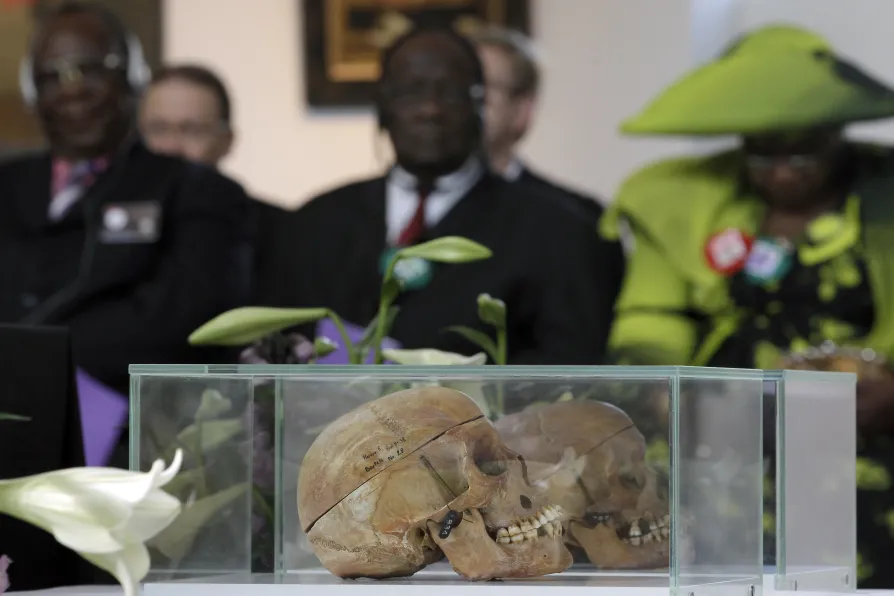
 Skulls of people from the Ovaherero and Nama tribes, which were taken by German colonial forces more than a century ago for racial experiments, are returned to Namibian tribal leaders during a ceremony in September 2011, in Berlin, Germany
Skulls of people from the Ovaherero and Nama tribes, which were taken by German colonial forces more than a century ago for racial experiments, are returned to Namibian tribal leaders during a ceremony in September 2011, in Berlin, Germany
NAMIBIA marked the mass killings of indigenous people in the early 20th century by former colonial ruler Germany with its first genocide remembrance day on Wednesday.
The day was declared a national holiday last year by the government and was commemorated for the first time with a ceremony in the gardens of the national parliament in the capital, Windhoek.
Between 1904 and 1908, tens of thousands of Herero and Nama people were massacred or forced into concentration camps and starved by German colonial forces under the command of General Lothar von Trotha, in what was then German South West Africa.
Germany formally recognised the atrocities as a genocide in 2021 and agreed to pay Namibia €1.1 billion (around £1bn) over the course of 30 years to fund various projects.
Namibia has rejected that and is pushing for more money and formal reparations for the massacres.
“Many people from the two communities were forced into concentration camps where they were starved to death and their skulls were taken to Germany for so-called scientific research,” Namibian President Netumbo Nandi-Ndaitwah said at Wednesday’s ceremony.
“These horrendous acts are now part of our collective history of resistance and resilience.”
The killings of Herero and Nama men, women and children have been recognised as the first genocide of the 20th century.
Historians say Gen von Trotha instructed his troops to wipe out the entire tribe. They say that the majority of the Herero people, about 65,000, were killed as were at least 10,000 Nama.
Namibia chose May 28 as the day to mark the genocide because it was the date Germany finally gave the order to close down the concentration camps.
Germany was the colonial ruler of Namibia from 1884 until 1915, when it gave up the territory to South Africa.
Namibia finally gained independence from South Africa in 1990.

The obfuscation of Nazism’s capitalist roots has seen imperialism redeploy fascism again and again — from the killing fields of Guatemala to the war in Ukraine, writes PAWEL WARGAN













